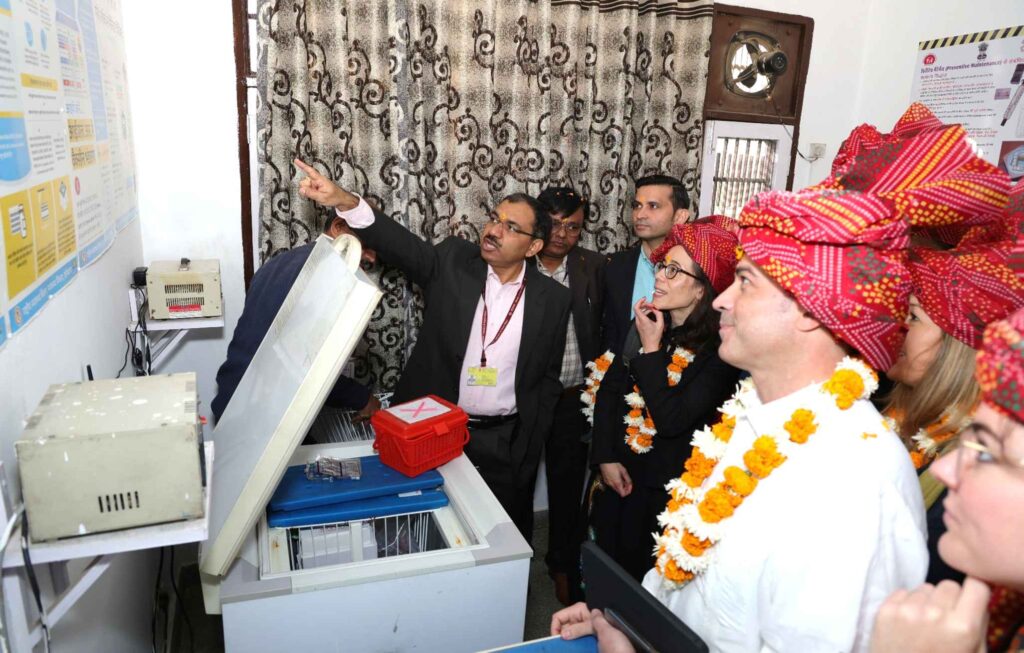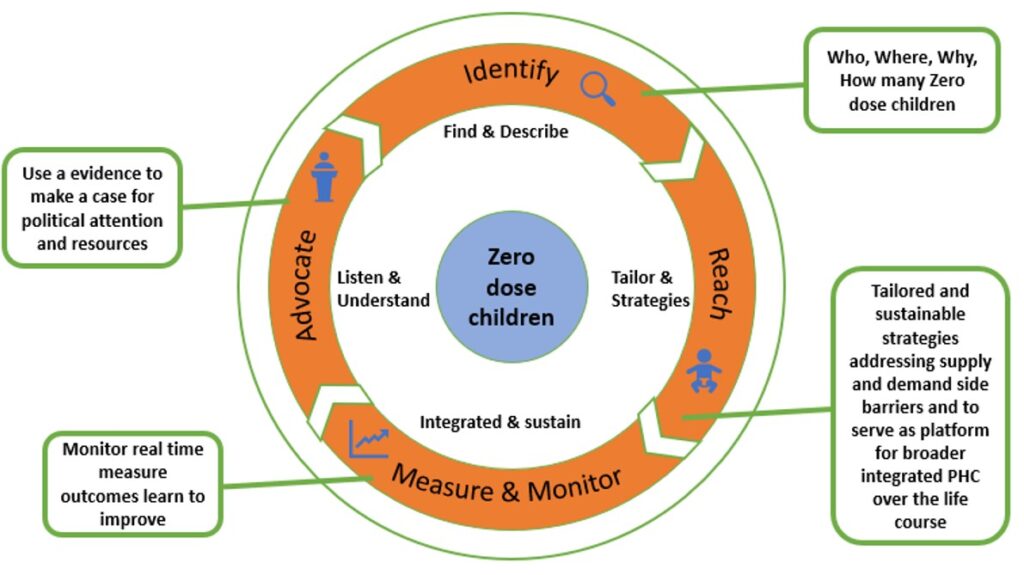Health System Strengthening (HSS 3)
Concept of health system strengthening
The Immunization Technical Support Unit (ITSU) has served as a strategic think tank for the Immunization Division, Ministry of Health and Family Welfare (MoHFW) in enhancing coordination, facilitating collaboration, and strengthening performance between the ministry and development partners. Over the years, with the support of Gavi and other immunization partners, India has been to keep polio free, eliminated Maternal Neonatal Tetanus and increased coverage of vaccines provided under Universal Immunization Programme.
The India-Gavi strategic partnership has been a successful win-win partnership since 2002. Gavi has been a steadfast ally, supporting the Government of India in accelerating the introduction of crucial vaccines and strengthening of health systems. At the same time, India’s introductions have led to economies of scale and improved the health of vaccine markets, which has benefitted other Gavi countries with new vaccine introductions.
Under the Phase 1 (2002-2016) & Phase 2 (2017-2023), Gavi has provided support for Health Systems Strengthening (HSS) along with the vaccine support. India-Gavi partnership has been renewed under phase 3, for another five years (2022-2026) with an investment of ~US$ 250 million. The objective of this investment was Reduction in number of zero dose children in line with Immunization Agenda 2030 (IA 2030) goals (-30% by 2026) through targeted sub-national strategies and introduction of new vaccines like Human Papilloma Virus (HPV) and Typhoid Conjugate vaccine (TCV) in to the UIP to prevent the future deaths.
Role of Health Systems Strengthening vertical
Health Systems Strengthening (HSS-3) vertical at ITSU provides technical assistance for immunization systems strengthening, generating evidence to policy making, introduction, and scale-up of new vaccines. Through this vertical, ITSU provides techno-managerial support to MoHFW for strengthening immunization in close coordination with Gavi secretariat, with a special focus on the Zero Dose Agenda and effective implementation of the interventions planned under Gavi- HSS-3 support. These interventions are currently aimed at 143 high-priority districts across 11 States. The team supports MoHFW in the preparation of proposals, development of applications and reports, and MEL Framework for Gavi. In addition, support is provided for the Gavi Program and Policy Committee (PPC) and Board meetings.
Immunization Agenda 2030
Immunization Agenda 2030 (IA2030) has been developed to highlight the importance of vaccines in preventing life threatening diseases thereby helping people of all ages live longer and healthier lives. IA2030 envisions a world where everyone, everywhere, at every age, fully benefits from vaccines as Immunization plays a critical role in achieving the SDGs, specifically SDG3, “Ensure healthy health and well-being. It aims to maintain hard-won gains in immunization, recover from the disruptions caused by COVID-19, and achieve even more – by leaving no one behind, in any situation or at any stage of life.
IA2030 is based on a conceptual framework of seven strategic priorities. Each strategic priority has defined goals, objectives and key areas of focus. These seven strategic priorities are anchored by four core principles that will shape the nature of actions undertaken to achieve each strategic goal and objective.
Thus, aligning with the Immunization Agenda 2030 & India’s roadmap to 90% full immunization coverage, India’s Zero Dose Implementation Plan has been developed. Under the renewed India – Gavi partnership, it is targeted to achieve a 30% reduction in zero-dose children by 2026 against the 2019 pre-pandemic baseline.
Zero Dose Children (ZD)
Zero dose children are those who have not received any basic vaccine. For the operational and reporting purpose - Zero Dose children are defined as children who have not received the first dose of Pentavalent vaccine till one year of age.
Under HSS-3, ITSU has developed a Guidance Document on Strategic Approach for Reaching Zero Dose Children in India titled ‘India’s Zero Dose Implementation Plan’. The document outlines various approaches and interventions for reaching the zero dose children and missed communities with full course of vaccines available under Universal Immunization Programme (UIP). This guidance document aligns with the Identify – Reach – Monitor – Measure – Advocate (IRMMA) framework & Immunization Agenda 2030.




